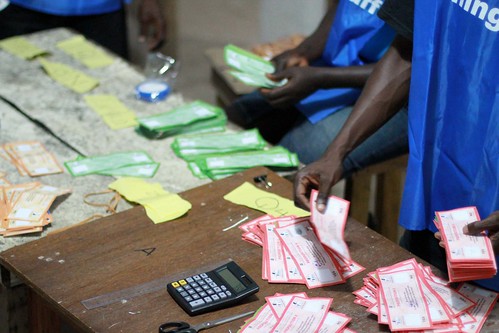Evidence suggests it has. Excerpts from paper by Masayuki Kudamatsu:
Does democracy promote development? Despite a large number of empirical studies of this question, the evidence remains inconclusive since it is difficult to establish causality running from democracy to development: democracy is likely to be endogenous to socio-economic factors that also affect development (Lipset 1959). As democracy at the national level is clearly not randomly assigned across countries, the empirical challenge is to disentangle the effect of democracy from other confounding factors to the largest possible extent. This paper revisits this question in the context of human development in sub-Saharan Africa. Specifically, I investigate whether the democratization sweeping the region in the 1990s has reduced infant mortality.
(…)
My findings are as follows. After democratization in sub-Saharan Africa since 1990, infant mortality drops by 1.2 percentage points (12% of the sample mean). This result is robust to controlling for country-specific linear trends in the birth year of babies, country-specific birth-order dummies, country-specific quadratic trends in the mother’s age at birth, and country-level covariates such as per capita GDP, the incidence of wars, and the amount of foreign aid. Except for a couple of outlying cases, there is no such reduction in infant mortality in countries where the dictator holds multiparty elections and stays in power by winning them or where leadership change takes place in a nondemocratic way.
***
Also read:
Does Democracy Improve the Quality of Life for its Citizens?

